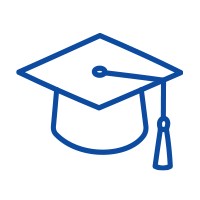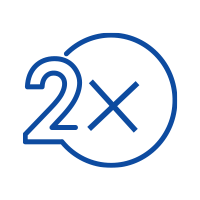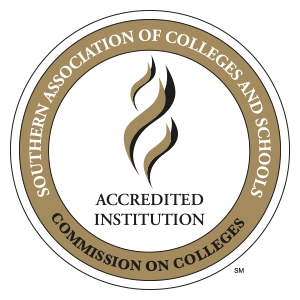Family Nurse Practitioner (MSN)
Family Nurse Practitioner Program
Master of Science in Nursing, MSN Degree

22 Month Master's Degree
49 Total Credits

1 Course Per Term
5 Week Terms
Degree Overview
Aspiring to make an even greater impact on the healthcare system and your patients' lives? The MSN-Family Nurse Practitioner concentration is tailored for nurses who aspire to take on a more comprehensive role in patient care. Through this program, students gain the knowledge and skills to diagnose illnesses, prescribe medications, order diagnostic tests, and perform physical exams for patients of all ages.
The online format of ECPI University’s program allows flexibility for busy schedules, while its comprehensive curriculum ensures graduates are prepared to provide primary care and specialty nursing services in various healthcare settings.
Knowledge and Skills
Graduates should grow in the following areas:
- Diagnosis and Treatment:
Gain expertise in diagnosing and managing a wide range of acute and chronic illnesses in patients of all ages.
- Advanced Physical Assessment:
Refine your skills in performing comprehensive physical examinations to accurately diagnose and monitor patient health.
- Primary Care Management:
Learn to provide comprehensive primary care, including preventive care, health promotion strategies, and chronic disease management.
Family Nurse Practitioner (MSN) Curriculum
the family nurse practitioner program will be able to perform as a primary care provider in the assessment, diagnosis, and treatment of acute and chronic illnesses in patients across the lifespan.
Advanced Practice
Prepares you to treat patients of all ages, diagnosing illnesses, prescribing drugs, ordering diagnostic tests, and performing physical exams.
Leadership in Nursing
Family Nurse Practitioner students develop leadership skills to manage and educate healthcare teams and improve patient care.
Institutional Accreditation
 ECPI University is accredited by the Southern Association of Colleges and Schools Commission on Colleges (SACSCOC) to award associate, baccalaureate, and master’s degrees. ECPI University also offers credentials such as certificates and diplomas at approved degree levels.
ECPI University is accredited by the Southern Association of Colleges and Schools Commission on Colleges (SACSCOC) to award associate, baccalaureate, and master’s degrees. ECPI University also offers credentials such as certificates and diplomas at approved degree levels.
Questions about the accreditation of ECPI University may be directed in writing to the Southern Association of Colleges and Schools Commission on Colleges at 1866 Southern Lane, Decatur, GA 30033-4097, by calling (404) 679-4500, or by using information available on SACSCOC’s website (www.sacscoc.org).



 ECPI University is accredited by the Southern Association of Colleges and Schools Commission on Colleges (SACSCOC) to award associate, baccalaureate, and master’s degrees. ECPI University also offers credentials such as certificates and diplomas at approved degree levels.
ECPI University is accredited by the Southern Association of Colleges and Schools Commission on Colleges (SACSCOC) to award associate, baccalaureate, and master’s degrees. ECPI University also offers credentials such as certificates and diplomas at approved degree levels.
